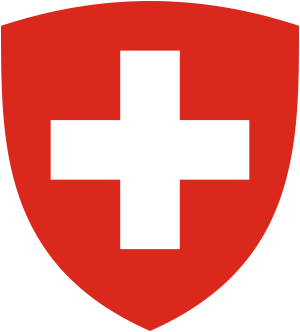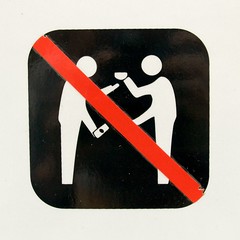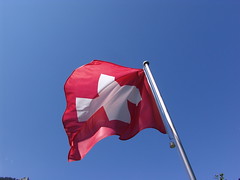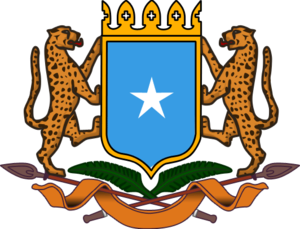 Image by CWGL via Flickr
Image by CWGL via Flickr
Source:
International Gay & Lesbian Human Rights Commission
IGLHRC is disappointed that the
Committee on the Elimination of all Forms of Discrimination Against Women (CEDAW Committee) failed to reference issues relating to sexual orientation or gender identity in its Concluding Observations for the 44th session. The countries reviewed in the 44th session were Azerbaijan, Bhutan, Denmark, Guinea Bissau, Lao People's Democratic Republic, Japan, Liberia, Spain, Switzerland, Timor Leste, and Tuvalu.
The Committee's silence is especially striking in the cases of Azerbaijan, Japan, and Switzerland. Shadow reports focusing exclusively on the human rights violations of lesbian, bisexual, and transgender (LBT) women were submitted by NGOs from these countries, and activists traveled to New York to attend the CEDAW session and speak at NGO meetings on the violations faced by LBT women.
CEDAW's Concluding Observations constitute the Committee's final recommendations to governments about how to further equality for all women. Where women as a group face discrimination or violence, the situation is often even worse for LBT women. Devaluing women on the basis of sexual orientation and gender identity devalues all women, just as adverse treatment of women as a group is particularly detrimental to women who are LBT.
The CEDAW Committee, as well as other human rights treaty bodies including the Human Rights Committee, the Committee on Economic, Social, and Cultural Rights (CESCR), the Committee Against Torture (CAT), and the Committee on the Rights of the Child (CRC), has recognized sexual orientation as a prohibited basis for discrimination. On at least one occasion the CEDAW Committee has also recommended legislation that protects people from discrimination on the basis of gender identity. Other treaty bodies including CESR and CATR have explicitly included gender identity among the prohibited grounds for discrimination.
The following comparisons reiterate some of the concerns that could have been included within the framework of the Concluding Observations. Although the groups’ recommendations were ultimately omitted from the session’s Concluding Observations, they still provide a useful blueprint for governments to act as they fulfill their obligations under CEDAW.
All the shadow reports and Concluding Observations from CEDAW’s 44th Session can be downloaded
here.
Azerbaijan:
The Gender and Development Social Union’s shadow report explicitly highlighted a number of areas where LBT women are particularly at risk in Azerbaijan:
- Prejudice in media and society, including hate speech and hate crimes,
- Domestic violence and forced marriage
- Discrimination in employment, health care, and the legal system.
The shadow report specifically recommended that Azerbaijan amend legislation to address family violence against LBT people, prohibit discrimination on the basis of sexual orientation and gender identity, promote education and tolerance, and adopt mechanisms to recognize transgender people in the legal and medical fields.
Azerbaijan should take LBT people into consideration as they implement these recommendations and recognize how LBT people are especially disadvantaged by these forms of inequality identified by the Committee:
- Stereotypical attitudes toward women and portrayals in the media,
- Domestic violence and violence against women, and
- Discrimination in education, employment, and health care.
Japan:
GayJapanNews’ shadow report explicitly highlighted a number of areas where LBT women are particularly at risk in Japan:
- Barriers to changing legal gender that limit access to health care,
information, and venues for expression,
- Discrimination in health care, education, employment, housing, social security, and asylum,
- Cultural expectations and pressure to marry, and
- Domestic violence and violence against women.
The shadow report specifically recommended that Japan adopt anti-discrimination legislation and establish an independent national institution to protect the human rights of LBT people.
Japan should take LBT people into consideration as they implement these recommendations and recognize how LBT people are especially disadvantaged by these forms of inequality identified by the Committee:
- Unequal provisions for inheritance, custody, adoption, and family law,
- Discrimination,
- Stereotypical attitudes toward women and portrayals in the media, and
- Domestic violence and violence against women.
Switzerland:
The shadow report by Fondation Agnodice, Lesbenorganisation Schweiz LOS, Lestime, Homosexuelle Arbeitsgruppen Zurich HAZ, and WyberNet explicitly highlighted a number of areas where LBT women are particularly at risk in Switzerland:
- Discrimination,
- Disparities in health and well-being,
- Barriers to changing legal gender and name across cantons, and
- Lack of recognition in family law.
The shadow reports specifically recommended that Switzerland adopt federal legislation prohibiting discrimination on the grounds of sexual orientation and gender identity, permit LBT couples and individuals to adopt, receive fertility treatment, and undergo artificial insemination, include LBT people in data collection, medical training, outreach and prevention programs, and improvements in care, and allowing transgender people to change their legal name and gender without preconditions.
Switzerland should take LBT people into consideration as they implement these recommendations, and to recognize how LBT people are especially disadvantaged by these forms of inequality identified by the Committee:
- Employment and economic disempowerment,
- Stereotypes,
- Domestic violence and violence against women,
- Lack of protections for rural women, and
- Lack of protections for women in de facto relationships if these dissolve.
Moving Forward on LBT Issues:
Given the considerable overlap between the problems raised by LBT groups and those acknowledged by the Committee, there is a clear justification for LBT inclusion in these reports. The Committee might consider, at minimum, highlighting the risks that LBT people face by including them in their concern for and recommendations on “vulnerable groups of women” (CEDAW, 44th Sess., Concluding Observations: Azerbaijan paras. 35-38; Japan paras. 53-54; Switzerland paras. 43-44).
In the Concluding Observations of the 44th session of CEDAW, there was no discussion of a host of other unique problems faced by individuals who are LBT–invisibility and marginalization in law and society, discrimination and violence on the basis of sexual orientation and gender identity, and stark disparities in physical and psychological well-being–which merit swift and specific attention.
The concerns of LBT people are unique enough to merit explicit consideration, but they are also inextricably related to the issues being raised by a broader community of women. Given the similarities between the issues that different groups of women face, the concerns of LBT women can–and should–be incorporated into the framework of recommendations by the Committee.
The 45th CEDAW session will be held January 2010 in Geneva, Switzerland. The Committee will review the human rights records of Botswana, Egypt, Malawi, Netherlands, Panama, United Arab Emirates, Ukraine and Uzbekistan. Civil society groups from those countries are encouraged to submit shadow reports on LBT issues.
~~~~~~~~~
For more information see IGLHRC’s July 2009 publication,
Equal and Indivisible: Crafting Inclusive Shadow Reports for CEDAW — a handbook for activists who want to write shadow/alternative reports for CEDAW incorporating human rights issues related to sexual orientation, gender identity and gender expression. Download the handbook
here.




















![Reblog this post [with Zemanta]](http://img.zemanta.com/reblog_e.png?x-id=915432b5-442e-4fcc-8b14-b47817d30d0f)


![Reblog this post [with Zemanta]](http://img.zemanta.com/reblog_e.png?x-id=1fe5448b-059c-40d5-9260-9931bc799529)

![Reblog this post [with Zemanta]](http://img.zemanta.com/reblog_e.png?x-id=b2560393-24be-4755-ae63-a83e72d61a22)


![Reblog this post [with Zemanta]](http://img.zemanta.com/reblog_e.png?x-id=9ecd66d5-a2ed-43f1-8f6b-953253b808b5)

![Reblog this post [with Zemanta]](http://img.zemanta.com/reblog_e.png?x-id=2814790e-5dd6-408a-a123-04fe189bd2ba)





 Join our page
Join our page

